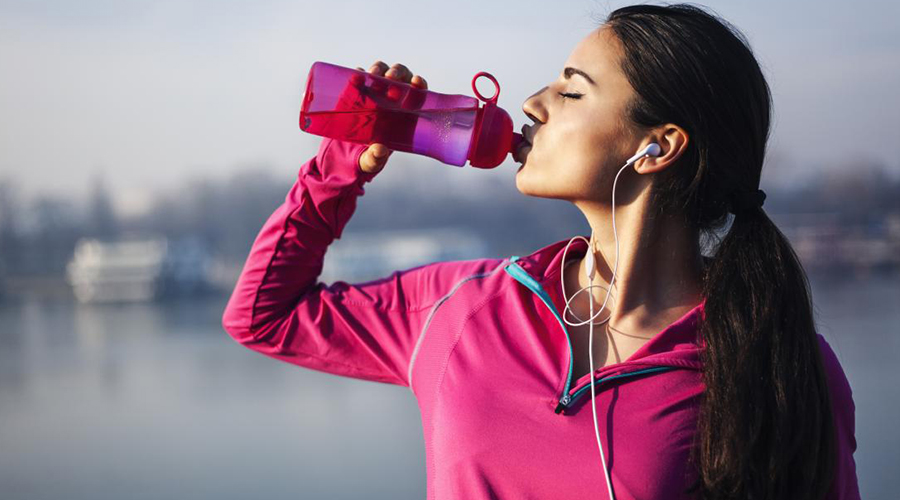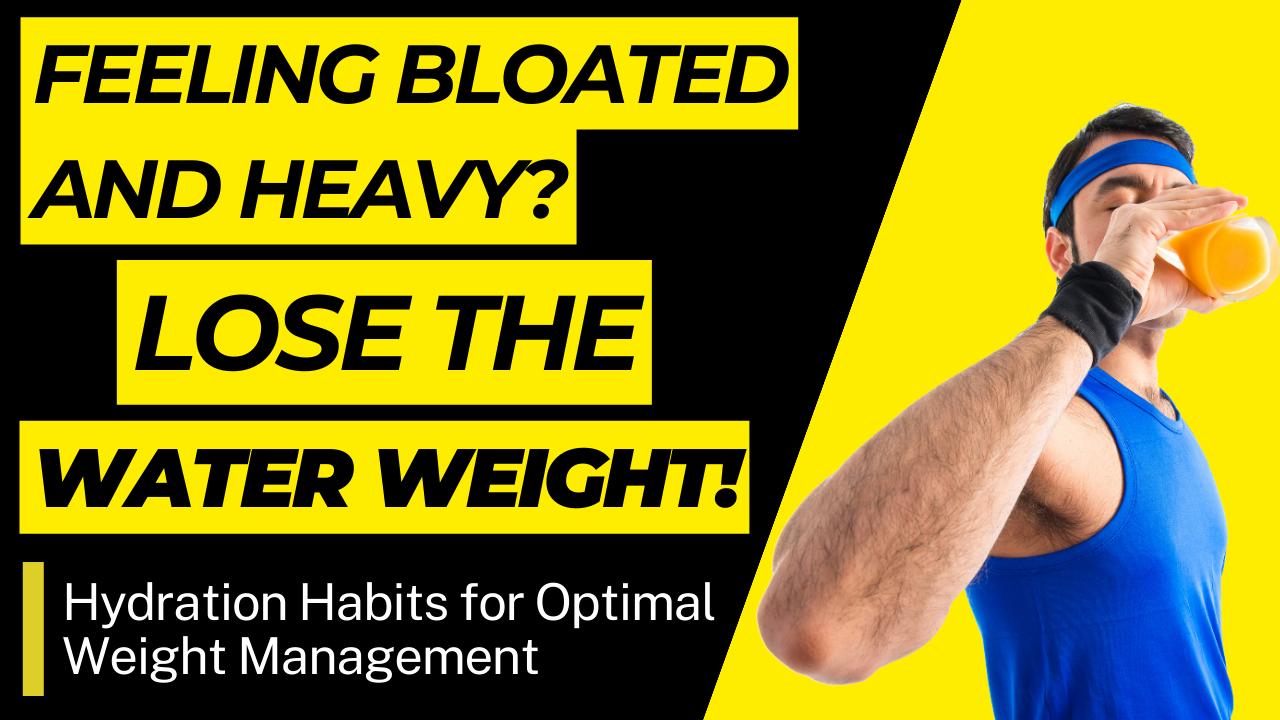Introduction
Feeling bloated and heavy is a common concern for many individuals, impacting not only our physical appearance but also our overall well-being. In this article, we’ll explore the nuances of water weight, its causes, and effective strategies to shed those extra pounds and reclaim a lighter, more energized version of yourself.
In the introduction, we set the stage for the reader, addressing a common issue and emphasizing its impact on both appearance and well-being. The goal is to engage the reader’s interest from the start.
Understanding Water Weight
Water weight, often misunderstood, refers to the excess fluids retained by the body. This can lead to bloating, swelling, and an overall feeling of heaviness. Understanding the dynamics of water weight is crucial for devising effective strategies to address this issue.
Here, we provide a clear definition of water weight and its associated symptoms. The aim is to educate the reader on the topic and emphasize the need for a comprehensive understanding.

Signs and Symptoms of Water Retention
Identifying the signs of water weight gain is the first step in tackling the issue. From subtle changes in appearance to physical discomfort, recognizing these symptoms allows for prompt intervention.
This section delves deeper into the signs and symptoms, encouraging the reader to self-assess and understand if they might be experiencing water retention.
Causes of Water Retention
High sodium intake, the dehydration paradox, and hormonal fluctuations are among the primary causes of water retention. Exploring these factors helps individuals make informed choices in their daily lives to prevent excessive water weight.
Here, we provide an insight into the root causes, empowering the reader with knowledge to make lifestyle adjustments.
The Connection Between Diet and Water Weight
A balanced diet plays a pivotal role in preventing water retention. Certain foods contribute to bloating, while others can alleviate it. Discovering the connection between diet and water weight is key to managing this common issue.
This section guides the reader on dietary choices, emphasizing the impact of food on water retention.
Hydration Habits for Optimal Weight Management
Staying hydrated is essential for overall health and effective weight management. We’ll delve into the importance of maintaining a healthy fluid balance and strategies to ensure adequate hydration.
In this part, we stress the significance of hydration and provide practical tips for readers to adopt healthy drinking habits.
Effective Ways to Combat WaterWeight
Incorporating diuretic foods into the diet and engaging in regular exercise are effective ways to combat water weight. Discover actionable steps to reduce bloating and feel lighter.
This section provides actionable advice, giving the reader concrete steps to address water weight issues.
Herbal Teas and Natural Remedies
Chamomile and dandelion tea offer natural remedies to reduce bloating. Explore the benefits of herbal teas and other natural approaches to alleviate water weight.
Here, we introduce natural remedies as an alternative approach, appealing to those who prefer holistic solutions.
Mindful Eating Practices
The pace at which we eat can impact digestion and water retention. Slow eating and mindful practices can contribute to better digestion and reduced bloating. Additionally, we’ll explore the connection between stress and water retention.
This section addresses lifestyle habits, emphasizing the role of mindfulness in managing water weight.
The Role of Exercise in Water Weight Management
Certain exercises are particularly effective in reducing water weight. From cardio workouts to strength training, we’ll outline a balanced exercise routine to help shed excess fluids.
We provide insights into the role of exercise, guiding the reader on suitable workout routines.
Supplements for Reducing Water Retention
While some individuals turn to supplements to address water retention, it’s crucial to approach this cautiously. We’ll provide an overview of commonly used supplements and stress the importance of consulting with a healthcare professional.
This section educates the reader on the potential use of supplements, emphasizing responsible and informed choices.
Creating a Sustainable Lifestyle for Weight Management
Addressing water weight is not just about quick fixes but creating a sustainable, healthy lifestyle. Incorporating positive habits into daily life contributes to long-term weight and water management.
We wrap up the actionable advice, encouraging readers to adopt a holistic approach to managing water weight.
Case Studies and Success Stories
Real-life examples of individuals overcoming water weight issues will be shared, offering valuable insights and inspiration. Learn from others who have successfully navigated the challenges of water retention.
Case studies humanize the content, making it relatable and inspiring for the reader.
FAQs about Water Weight
Can drinking more water help reduce water weight?
Yes, drinking more water can indeed help reduce water weight. It might sound counterintuitive, but dehydration can lead to the body holding onto water, contributing to water weight. When the body is not adequately hydrated, it enters a state of conservation, retaining water in an attempt to prevent further water loss.
By consistently drinking enough water throughout the day, you signal to your body that it is well-hydrated, reducing the need for water retention. Additionally, proper hydration supports optimal kidney function, aiding in the elimination of excess fluids and waste. As a result, maintaining a sufficient water intake can play a crucial role in reducing water weight and promoting overall well-being.
Are there specific foods that contribute to water retention?
Yes, certain foods can contribute to water retention. High-sodium foods are a primary culprit. Sodium, a component of salt, attracts and holds onto water. Consuming an excess of salty foods can lead to an imbalance in the body’s fluid levels, resulting in bloating and water retention.
Processed foods, canned soups, salty snacks, and restaurant/fast food are common sources of high sodium. To combat water retention, it’s advisable to limit the intake of these foods and focus on a balanced diet rich in fruits, vegetables, lean proteins, and whole grains.
How does stress impact water weight?
Stress can significantly impact water weight through hormonal fluctuations. When stressed, the body releases cortisol, known as the stress hormone. Elevated cortisol levels can lead to increased water retention. Moreover, stress may also influence behaviors that contribute to water weight gain, such as emotional eating or choosing less healthy food options.
Additionally, stress can disrupt sleep patterns, and lack of sleep has been linked to water retention. Adequate rest is essential for hormone regulation and overall bodily functions, including maintaining a healthy fluid balance.
Practicing stress management techniques like meditation, deep breathing, or engaging in relaxing activities can be beneficial in reducing stress-related water weight.
Is it safe to use diuretic supplements for managing water weight?
Using diuretic supplements to manage water weight should be approached with caution and preferably under the guidance of a healthcare professional. Diuretics increase urine production, leading to fluid loss from the body. While they can be effective in reducing water weight in certain situations, misuse or overuse can have adverse effects.
Potential side effects of diuretic use include dehydration, electrolyte imbalances, and dependency, where the body becomes reliant on diuretics to maintain fluid balance. Long-term use without medical supervision can be harmful.
Before considering diuretic supplements, it’s essential to consult with a healthcare professional to assess whether they are suitable for individual circumstances and to determine the appropriate dosage and duration.
What role does exercise play in preventing water retention?
Exercise plays a crucial role in preventing water retention by promoting circulation, lymphatic drainage, and sweating. When we engage in physical activity, blood circulation improves, aiding the kidneys in filtering and eliminating excess fluids.
Both aerobic exercises (such as running, swimming, or cycling) and resistance training contribute to reducing water retention. Aerobic exercises stimulate blood flow and sweating, facilitating the removal of excess fluids. Resistance training, on the other hand, helps prevent fluid buildup in tissues by supporting muscle contractions and improving overall circulation.
Regular exercise also promotes overall health, which can indirectly contribute to optimal fluid balance. It’s important to note that consistency is key, and incorporating a combination of aerobic and strength-training exercises into a balanced fitness routine can be highly effective in preventing water retention.
Always consult with a healthcare or fitness professional before starting a new exercise regimen, especially if there are existing health concerns.
Conclusion
Feeling bloated and heavy due to water weight is a common issue, but with the right knowledge and strategies, it’s entirely manageable. By understanding the causes, making informed dietary choices, staying hydrated, and incorporating exercise, individuals can effectively shed excess water weight and feel lighter and more energized.
The conclusion summarizes key points, reinforcing the main message of the article.






